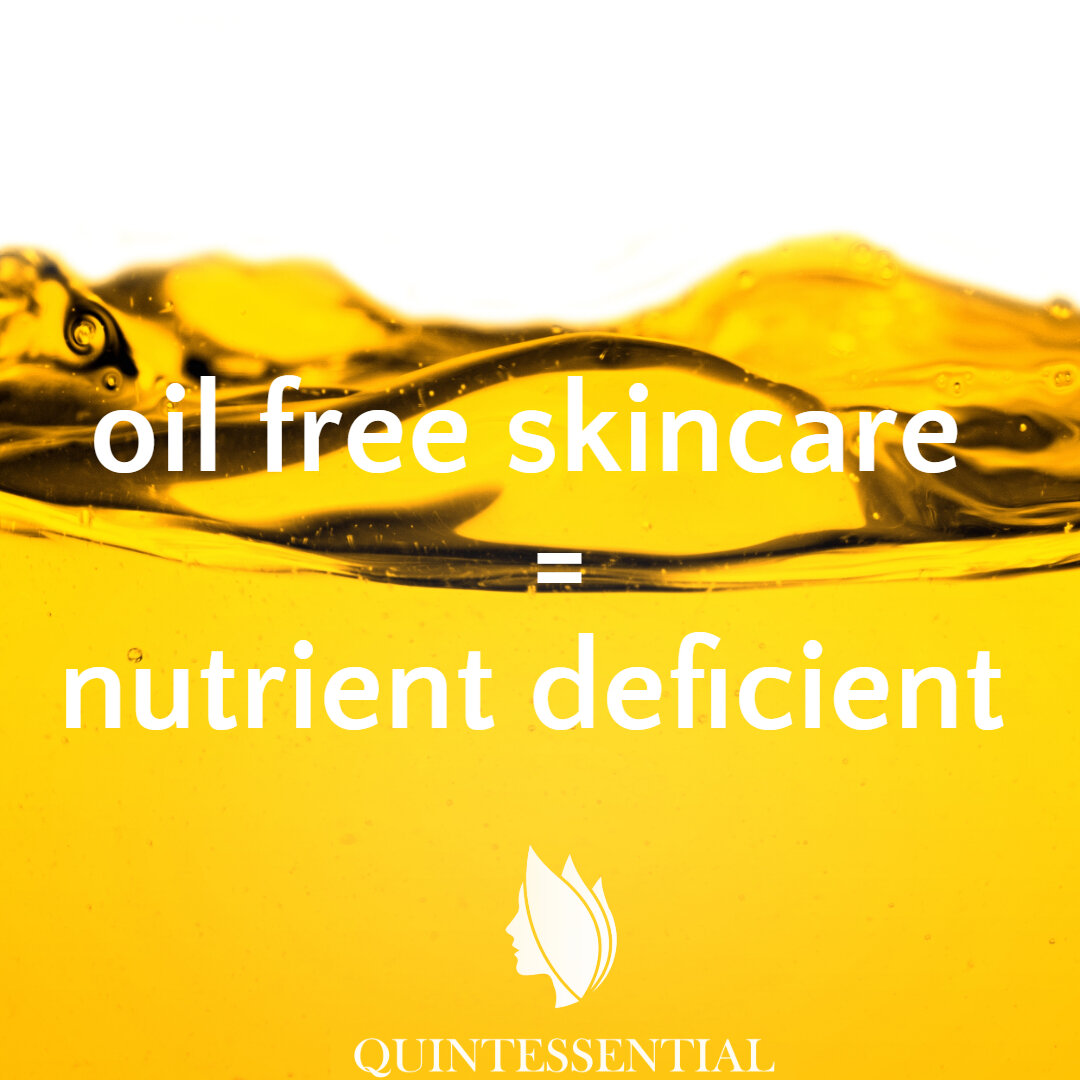Why You Should Avoid Oil Free Skincare
Oil gets such a bad rep in the world of skincare and it’s easy to see why. Over the years there have been trends that have put many of us off using oils altogether. A decade ago the world of skincare became obsessed with Coconut oil. It was marketed as the cure for any skin concern you could have, from breakouts to pigmentation, wrinkles to irritation, even as a natural toothpaste. What did most of us get from this trend? Blackheads.
‘Oil Free’ skincare is often heralded as the solution to looking greasy or shiny but it’s actually counter-intuitive. More on that later but let’s start with why Oil is important.
Vitamins are divided into two types, water-soluble and oil-soluble (although in nutrition it’s often called fat-soluble but those terms mean the same thing!). Oil-soluble vitamins (A, D, E & K) are just as important for your skin as they are for your diet. They play vital roles in the health of your skin, see below;
Vitamin A (Retinol) - helps cell turn over (anti-wrinkle), speeding up healing
Vitamin E - strengthens skin barrier, antioxidant
Vitamin D - skin cell growth, skin protection
Vitamin K - wound healing and repairing, anti-inflammatory
Skincare that doesn’t have oil in it, cannot have any of the above Vitamins in it, as there’s no fluid to carry it in. So when we apply things without oil, we’re doing a disservice to our skin, we are giving it some of the things it needs and not all. We’re also then missing out on all of the benefits that oil-soluble vitamins have to offer and let’s remember that Vitamin A (commonly known and marketed as Retinol) is one of the best anti-wrinkle ingredients in the world.
There’s a misconception that if your skin is oily, you should avoid using anything with oil in it and that this will then reduce the shininess. In reality, your skin produces oil to try to lock moisture in and reduce the amount of water that is lost throughout the day. Oil sits on top of the skin to work as a physical barrier to stop that water loss. If your skin is overproducing oils and you feel it looks shiny or greasy, it’s almost always very dehydrated. A moisturiser that has both oil and water, will work to add water to the skin and use oil to lock it in. Once the skin is completely nourished and maintaining optimum hydration levels, it will slow down the production of oil, in turn reducing the shine.
Using ‘Oil Free’ may help in the very short term with oily/ greasy skin but it’s not working on the root cause or helping your skin to lock moisture in.
When it comes to adding oils to skincare, not all oils are created equal, there are some that can feel heavy on the skin, that aren’t easy to absorb (think of any time you’ve ever gotten Coconut or Olive Oil on your skin when cooking and how it can be a pain to get off even with soap). But other oils exist that are much thinner, are easily absorbed and still have high levels of the oil-soluble nutrients in them. In our Moisturiser we use a blend of Jojoba, Sunflower Seed and Oat oils that is completely absorbed into the skin, leaving no residue but full nourishment.
